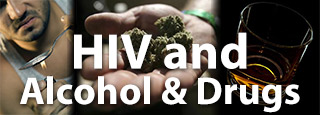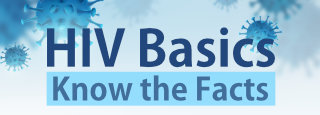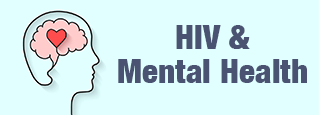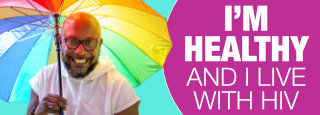HIV & Smoking
HIV+ smokers are at a much greater risk of developing illnesses
Why is smoking more dangerous for people with HIV?
Statistics have shown that people who are HIV+ are more likely to smoke than HIV- people. This is unfortunate because HIV+ people already have a compromised immune system and smoking simply adds to the risk of greater ill health.
In healthy people smoking principally interferes with normal lung function. In people with HIV smoking additionally makes it more difficult to fight off serious infections. HIV+ people are living longer. Smoking, and smoking related conditions, will interfere with their long term quality of life.
In healthy people smoking principally interferes with normal lung function. In people with HIV smoking additionally makes it more difficult to fight off serious infections. HIV+ people are living longer. Smoking, and smoking related conditions, will interfere with their long term quality of life.
Smoking and side effects
HIV+ smokers are more likely to suffer complications from HIV medication, e.g. they are more likely to experience nausea and vomiting. Smoking also increases the risk of some long-term side effects of HIV disease and treatment such as osteoporosis; weak bones that can lead to fractures; and the risk of a heart attack or a stroke.

What are the risks of smoking?
It is well known that smoking weakens the immune system, so imagine what it does to someone with an already weakened immune system. It makes it harder to fight off HIV+ related infections. This is especially true infections related to the lungs, e.g. increasing the risk of chronic lung disease.
Smoking can also interfere with processing of medications by the liver and can worsen liver conditions like hepatitis..
Smoking can also interfere with processing of medications by the liver and can worsen liver conditions like hepatitis..
Smoking and your health
In addition HIV+ smokers are at a higher risk of smoking related illnesses and smoking has been shown to increase the risk of HIV+ related illnesses occurring.
Compared to HIV- smokers, HIV+ smokers are at an increased risk of developing illnesses such as:
HIV+ smokers are more likely to develop HIV related opportunistic infections such as:
Compared to HIV- smokers, HIV+ smokers are at an increased risk of developing illnesses such as:
- Cardiovascular conditions such as high blood pressure, heart disease and heart attacks
- Cerebrovascular conditions such as strokes
- Malignancies such as lung cancer, anal cancer, mouth cancer, throat cancer, stomach cancer, head and neck cancer
- Decreased lung function, chest infections, chronic inflammation of the lungs and airways
- Emphysema and chronic bronchitis
- Mouth problems such as gingivitis, periodontitis, thrush and oral hairy leukoplakia
- Brain degenerative disorders such as impaired cognitive function and dementia
HIV+ smokers are more likely to develop HIV related opportunistic infections such as:
- Pneumocystis pneumonia (PCP)
- Bacterial pneumonia
- Thrush
- Oral hairy leukoplakia - whitish mouth sores
- Mycobacterium avium complex (MAC)
- For women, smoking can increase the risk and severity of infection with human papillomavirus (HPV). This increases the risk of cervical disease.
How do I quit smoking?
The addiction to smoking is actually an addiction to nicotine. Nicotine, by itself, is not harmful. However the means by which most people obtain their nicotine is, i.e. smoking cigarettes. Smoking is the “dirtiest” form of obtaining nicotine. There are over 4,000 chemicals in a cigarette including cyanide, acetone, methane, etc and more than 40 known carcinogens.
Smoking is not only highly addictive; it is also extremely habit forming. That is why it is very difficult to stop. However there are lots of ways to quit smoking. It’s a case of different strokes for different folks. That is why it is important that you understand and explore what methods are available and decide which method would suit you best.
Some people can just stop smoking i.e. ‘cold turkey’, other people need some help. Help comes in many forms. It can be a medication that helps you cope with the physical and chemical symptoms of nicotine withdrawal or a technique, therapy or support group that helps you deal with the psychological addiction to smoking.
Some medication can be purchased at Chemists - chewing gum and lozenges - while others require a prescription, such as inhalers, nasal sprays, micro tabs or pills.
Smoking is not only highly addictive; it is also extremely habit forming. That is why it is very difficult to stop. However there are lots of ways to quit smoking. It’s a case of different strokes for different folks. That is why it is important that you understand and explore what methods are available and decide which method would suit you best.
Some people can just stop smoking i.e. ‘cold turkey’, other people need some help. Help comes in many forms. It can be a medication that helps you cope with the physical and chemical symptoms of nicotine withdrawal or a technique, therapy or support group that helps you deal with the psychological addiction to smoking.
Some medication can be purchased at Chemists - chewing gum and lozenges - while others require a prescription, such as inhalers, nasal sprays, micro tabs or pills.
In addition some people find the following help them quit:
- altering the routines that encourage or trigger smoking
- alternative treatments like acupuncture, hypnosis, etc
- getting support to reduce outside factors like stress
- participating in motivational groups
Some people can just stop ‘cold turkey’, other people need some help
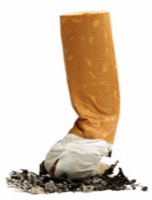
The bottom line
Smoking will reduce the immune system’s capability to fight infections in HIV+ smokers. There are many ways to quit smoking. You need to explore and understand these to find a way that would work for you.
Body Positive can help you to quit smoking. If you would like further information please contact us
Join Body Positive
By becoming a member you will be able to access all the services we offer, as well as support and updates to help you live better.
Newsletter
Want to be keep up with whats happening at Body Positive?
Subscribe to our newsletter below by submitting your e-mail address.
Subscribe to our newsletter below by submitting your e-mail address.

